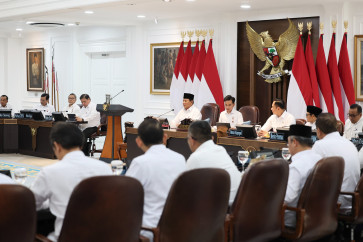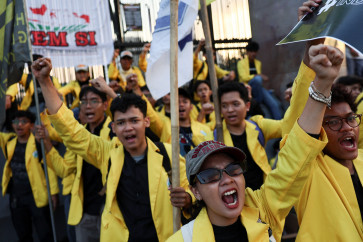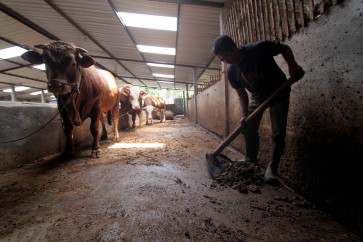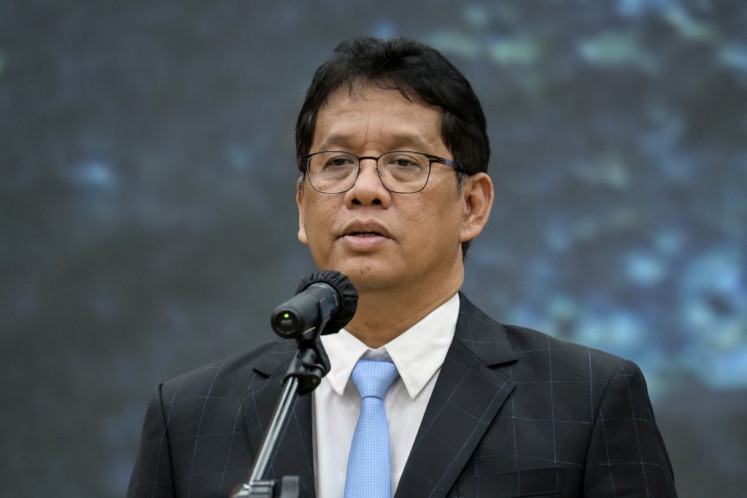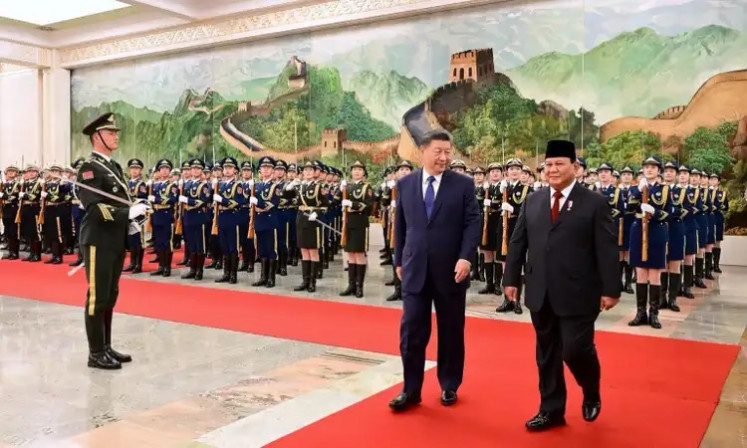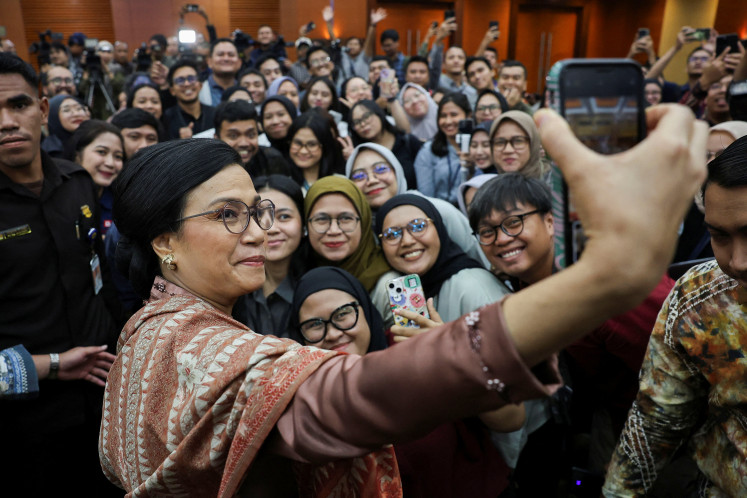Popular Reads
Top Results
Can't find what you're looking for?
View all search resultsPopular Reads
Top Results
Can't find what you're looking for?
View all search resultsPWI to open five journalism schools
The Indonesian Journalists Association (PWI), in cooperation with the National Education Ministry, UNESCO and local administrations, is establishing six new journalism schools across Indonesia
Change text size
Gift Premium Articles
to Anyone
T
he Indonesian Journalists Association (PWI), in cooperation with the National Education Ministry, UNESCO and local administrations, is establishing six new journalism schools across Indonesia.
Head of the PWI Margiono said on Tuesday that his organization is now running a journalism school pilot project in Palembang, the capital city of South Sumatra, with plans to establish five more journalism schools in Jakarta, Semarang, Central Java, Makassar, South Sulawesi, Riau province and Samarinda, East Kalimantan.
“The schools cover basic, intermediate and advanced training for journalists,” said Margiono after the Press Card Number One award ceremony.
According to PWI general secretary Hendry Ch. Bangun, the idea to establish the schools started with association’s concern about the quality of local journalists.
“PWI’s current main programs are to enhance professionalism and to enforce the code of ethics,”
he said.
He said that journalists can work well to fulfill the expectations of society only if they become professional.
Some local administrations have welcomed the idea and showed support for the project, with Alex Noerdin, the governor of South Sumatra province, being the first official stating his willingness to fund a school.
The pilot school in Palembang just completed its first training round attended by full-time journalists with less than five years of work experience in electronic and print media.
The curriculum consists of philosophy, the journalism code of ethics and press laws, press management and journalism in theory and practice, which covers feature writing and interviewing techniques.
“The costs were high because we were using visiting experts as trainers,” said Hendry, citing that veteran journalist Ashadi Siregar was one of the lecturers.
Hendry said that it cost Rp 240 million (US$24,000) to run the school in Palembang, which was provided by PWI, the local administration and the Education Ministry. For the first three years journalism training at the schools is free to the public.
Hendry said that the response to training at the pilot school had been good.
“So far, trainees think the curriculum is satisfactory,” he said.
Hendry added the blueprint for the Palembang school would be applied to other schools that will open this year.
During a brief speech after receiving an award, veteran journalist Sabam Siagian said that nowadays journalists were readily criticized, especially those in the electronic media.
The problem, he said, was due to media saturation in the reformation era.
“So there is an extreme gap between supply of skilled human resources and demand from the industry,” he said.
He said that the PWI’s initiative to launch schools of journalism in several places throughout the country showed its effort to accommodate the criticisms levelled against it.
“At least we will show society that we are serious. We recognize our limitations and we try to improve them,” he said.


